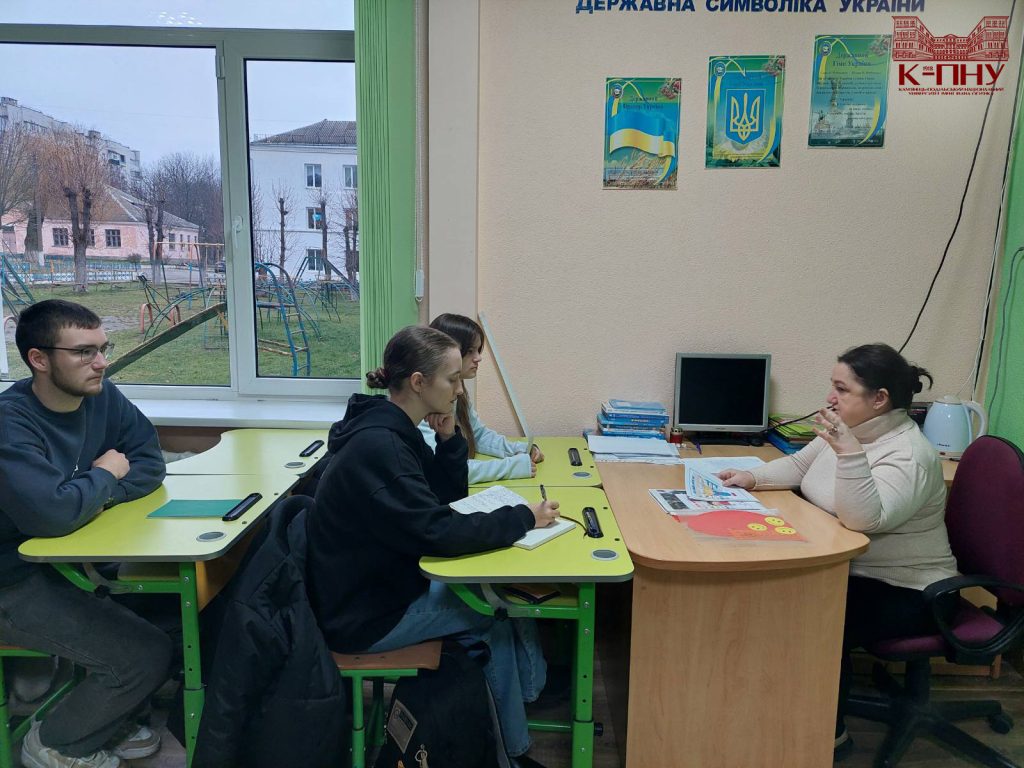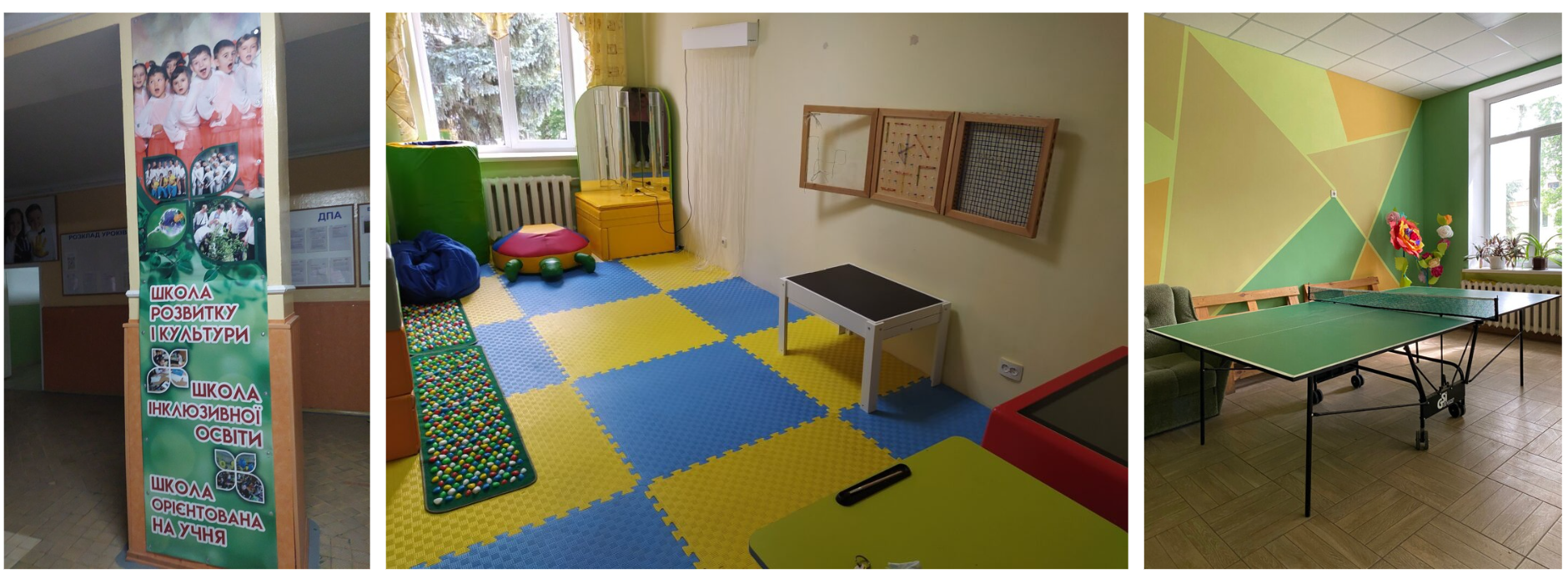
During November and December 2024, with the support of Oksana Tokar, the principle of Kamianets-Podilskyi Lyceum No. 3, students from the 2nd to 4th year of the educational and professional program “Secondary Education (Language and Literature: German, English)” had the opportunity to learn firsthand about the school’s approach to implementing inclusive education.


Our students observed the work of foreign language and foreign literature teachers, as well as their assistants, in inclusive classrooms. They were also introduced to the process of preparing adapted lesson plans and handouts designed to meet the needs of children requiring varying levels of support.
Here are some reflections shared by the students:
“Today, the issue of organizing inclusive education is very important. When I visited Lyceum No. 3, I saw firsthand the tremendous efforts made by every teacher in an inclusive classroom. I was impressed by how the school coordinates the work of subject teachers and their assistants. Classroom teachers not only conduct lessons but also serve as role models of warmth and kindness, which greatly influences how students perceive and treat one another. I believe I witnessed an exemplary model of inclusive classroom practices.” — Andrii Verhun
“The university provided us with the opportunity to attend lessons across various disciplines at Lyceum No. 3, where we observed specialist teachers working with children in inclusive settings. This experience was incredibly useful and insightful. I saw how teachers skillfully organized the educational process, ensuring that all students, including those with special educational needs, participated actively without diverging from the main lesson objectives. I was particularly impressed by the teacher’s assistant, who carefully considered each student’s individual characteristics and provided clear guidance on adapted tasks, fostering full inclusion in the learning process. This experience not only deepened my understanding of inclusive education but also inspired me for my future professional career.” — Sofiia Savolainen
Department of German
